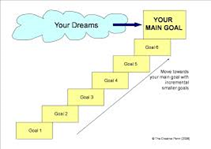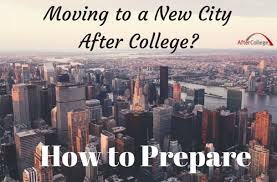Tiffany J. Franklin, Associate Director
Congratulations! You landed an interview for your dream job or internship and you think you’ve done all the necessary prep work. Are you really ready to knock it out of the park and show this company why they should hire you? Before closing the book on your interview prep, you must be sure you possess this skill…
The ability to articulate your experience in a way that is meaningful to this particular employer.
The employer already has a vague notion that you can do the job or else they would not bring you in for an interview. Now, they need you to inspire confidence in them that will confirm their initial instincts about you were on point. Specifically, the interview process needs to assure the employer that …
- You have the specific Knowledge, Skills (soft and hard), and Abilities to perform the job duties
- You have the motivation/initiative to do the job
- You will work well with the team/clients and demonstrate emotional intelligence
- You have problem solving skills and can offer solutions to company pain points
Now that we know what you need to accomplish, there are 3 concrete steps you can take to prepare for your interview.
- Know the job description inside/out and do in depth research about the company. This is huge! To tailor your message to this employer you have to understand who they are (Corporate website, About Us page, Mission statement, Press Releases, Social Media Accounts) and have a firm grasp on the key qualities they are seeking in a candidate. Most job descriptions will ask for 50 different things, but you can usually group these into 3 to 5 major skill areas (hard and soft skills).
- Understand Yourself and Be Able to Tell Your Story.
This is an exercise I call “Your Greatest Hits.” This will give you a quick visual depiction of approximately 30 success stories across skills areas and is a great prompt for those behavioral, “Tell me about a time when” questions. They are based on the premise that the best predictor of future behavior is past behavior.On one sheet of paper write 10-15 skill areas (for example, Leadership, Teamwork, Cultivating Client Relationships, Demonstrating Initiative, Customer Service, Project Management, Problem Solving, Data Analysis, Persuasive Communication, Delivering Presentations, Mentoring, Product Management, Budgeting, Coding, and other technical/non-technical skills. Select those 5 skill areas represented in the job description (from step 1) plus soft skills and other skills applicable to your field/industry.
For each of these skill areas, write 2 – 3 CAR stories meaning Challenge (what was the challenge you encountered), Action (what were the specific actions you took to address the challenge), and Results (what were the positive results). The answers to these should be 90 seconds to 2 minutes long and demonstrate you using that skill.
When doing this exercise, don’t write out long answers. You know your experience and should not memorize the answers – rather use the keywords and phrases to trigger your memory. For example:
Adaptability
C: Wedding Planner for outdoor ceremony/reception in FL in July; forecast called for showersA: Encouraged couple to consider party tent; called frequently used vendor and secured tent days before ceremony; worked with other vendors to adjust to new configuration for reception. Ordered umbrellas.
R: Sunny for ceremony, but rained most of reception. Tent in place, dry guests, good time had by all. The couple was happy and guests commented on beautiful event in spite of weather.
- Practice saying these success stories aloud. It will help you smooth out the flow (get rid of ums, pauses, likes), identify areas where you need to come up with a better example, and in the process increase your confidence.
By engaging in these exercises, you have made a significant step in preparing for a successful interview. You are now able to articulate how everything you have done in your career to this point has been building transferrable skills and leading you to this interview!
Career Services is here to help you with this process. Review numerous resources online at www.vpul.upenn.edu/careerservices/interviewingadvice/practiceresources.php and you are welcome to schedule a mock interview with one of our career advisors.











